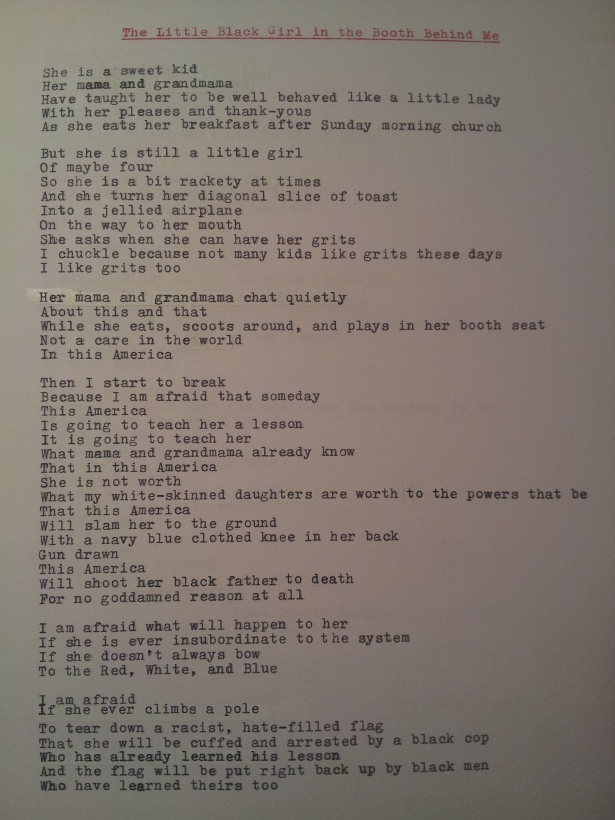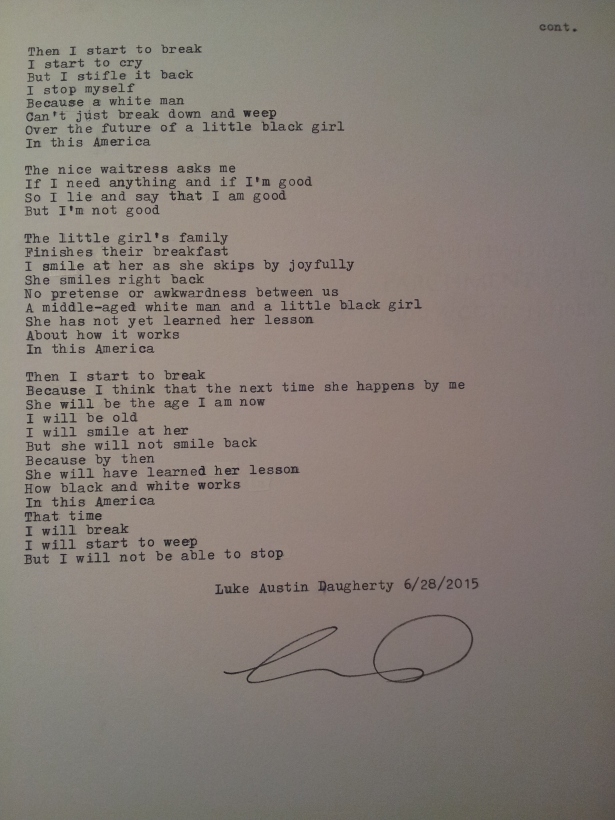res·o·lu·tionˌrezəˈlo͞oSH(ə)n/ noun1. a firm decision to do or not to do something.
Before starting to create my own resolutions for this new year, I asked myself, “What have I learned about creating resolutions and completing goals during my life?” Then, I created the shortest list possible. I hope some of what I have learned can help you to refine your list for 2016 as well. As always, thanks for reading and sharing! -Luke
1. Go for quality resolutions over quantity of resolutions-
One of the biggest mistakes when setting goals is to have too many of them at one time. You only have so much time and energy. The focus that each individual goal requires will diminish how much you can focus on the other goals you have. It is much more advantageous to succeed in fewer goals than to fail at many. Also, different goals require different levels of attention and commitment. Attempting to complete lots of “big” goals during the same time span is a recipe for failure. Don’t shy away from some life-changing or lofty resolutions. Just avoid trying to tackle too many at once.If your New Year’s Resolution list reads something like, “Lose 50 pounds in six months, read a book a week, write a poem a day, do 6 half-marathons, learn to play a new instrument, learn a new language, and save 20% of my income,” I hate to be a downer, but you’ll very likely not finish that list. BUT, more than that, being partially focused on so many difficult goals may keep you from completing even one goal successfully. Don’t spread yourself too thin. Choose few and choose wisely.
For consideration, divide your life up into three primary realms with three subcategories each: 1. Self (intellectual, emotional, and physical), 2. Relationships (family, romantic, and friends), 3. Work/career (current job or the next hopeful job transition, continuing formal or informal vocational education, and/or entrepreneurial pursuits). Next, try to consider what goals, if set and achieved, would measurably improve your own personal health and happiness, the quality of your relationships, and the satisfaction and rewards you get from your current vocation or a potential new one. Shoot for choosing one manageable goal for each subcategory, for a total of nine overall goals. Then, toss out any less important goals that may significantly distract you from the more important. If you think all nine are worthwhile and manageable, keep them. For me, I am a big fan of bubble graphs when it comes to this activity. See my own work in progress, sketched out on packing paper from my ebay shipping table…
![20160104_152839[1]](https://bloomwithoutpermission.com/wp-content/uploads/2016/01/20160104_1528391.jpg?w=615)
Luke’s 2016 Resolutions- first draft on packing paper
Don’t pick a resolution only because you saw it on a meme that your friend shared on Facebook or some random goal that was suggested in a magazine article. If fad excitement is the reason you choose a resolution, the eventual lack of fad excitement will likely be the reason you stop following the resolution later. So far as activities go, choose things to do that you actually like to do already. Just commit to do them more regularly and/or with more dedication than you previously have. Do you enjoy reading? Read, but read new and/or more books. Do you like to ride bikes? Ride more often, to new places, and farther than before.
3. Choose resolutions that are challenging, yet achievable-
You know yourself better than anyone. Based on your history of keeping previous goals, are the goals you’re setting now way too overboard for what you will or can actually keep? For instance, if you have set lofty weight loss goals for the last five years and then failed to keep them, gotten discouraged after a few months, then dropped them all together for the rest of the year, perhaps more realistic goals are the way to go this year. It is much more advantageous to set a two pound loss per month goal and KEEP it, than an eight pound goal, not hit it, get bummed out, and forget about it. Don’t make your actual, present self the whipping-boy for a grandiose internal idea of your future “improved self.” Set goals, that though they are challenging, you will enjoy the process of keeping the goal as much as the end result of achieving it.
4. Don’t commit to new resolutions too quickly-
If you already have all of your goals for the next year committed to by January 1st of the year, you may want to give yourself some extra time for reflection. To commit a year of your life or even months to achieving a goal is a big deal. You don’t get time back after it is gone. I suggest coming up with a tentative list of goals by about seven days into the year. Then, contemplate on that list and get a feel for what it is like to work that list for another week or two. About the third week of January, grab a coffee or lunch alone in a relaxed setting to do a final draft of your resolutions in an unhurried fashion. Tweak your list if needed and then get some real traction on your firmed-up goals. Once your resolutions are set, type them up on a sheet of paper in a large, bold font. Then, post that paper somewhere conspicuous in your home so you’ll see it every day as a reminder of the commitment you made to yourself. Hold yourself accountable to that printed list. Remember, a goal is just the beginning. Each of the goals you come up with and commit to will require you to devise an intentional plan of attack for you to be successful completing them.
5. Consider if completing your resolutions will inspire lasting satisfaction-
You’ll have to use your imagination on this one. Think about whether each of the goals you are setting now, if achieved, would still matter to you looking back in hindsight five years from now. Not only that, but would any of your new short-term goals potentially work AGAINST any of your more important long-term goals? Last, “more” doesn’t always have to be part of a goal. Simplifying life, decreasing distractions, and minimizing what you don’t desire in life is just as important as increasing what you do.
It is much more advantageous to succeed in fewer goals than to fail at many.
As you are working though your potential list of resolutions, some comedy relief may come in handy! Check out the new segment by John Oliver 🙂
Last Week Tonight with John Oliver: Revised Resolutions


